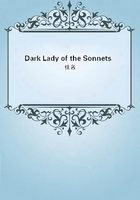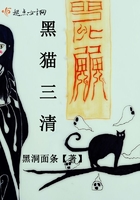The system propounded by Baius had much in common with the teaching of Pelagius, Luther, and Calvin. His failure to recognise the clear distinction between the natural and the supernatural was the source of most of his errors. According to him the state of innocence in which our first parents were created, their destination to the enjoyment of the Beatific Vision, and all the gifts bestowed upon them for the attainment of this end were due to them, so that had they persevered during life they should have merited eternal happiness as a reward for their good works. When, however, man sinned by disobedience he not merely lost gratuitous or supernatural endowments, but his whole nature was weakened and corrupted by Original Sin which, in the system of Baius, was to be identified with concupiscence, and which was transmitted from father to son according to the ordinary laws of heredity. This concupiscence, he contended, was in itself sinful, as was also every work which proceeds from it. This was true even in case of children, because that an act be meritorious or demeritorious Free-will was not required. So long as the act was done voluntarily even though necessarily, it was to be deemed worthy of reward or punishment, since freedom from external compulsion was alone required for moral responsibility.
From the miserable condition into which man had fallen he was rescued by the Redemption of Christ, on account of which much that had been forfeited was restored. These graces procured for man by Christ may be called supernatural, not because they were not due to human nature, but because human nature had been rendered positively unworthy of them by Original Sin. The justice, however, by which a man is justified, consisted not in any supernatural quality infused into the soul, by which the individual was made a participator of the divine nature, but implied merely a condition in which the moral law was observed strictly. Hence justification, according to Baius, could be separated from the forgiveness of guilt, so that though the guilt of the sinner may not have been remitted still he may be justified. In sin two things were to be distinguished, the act and the liability to punishment. The act could never be effaced, but the temporal punishment was remitted by the actual reception of the sacraments, which were introduced by Christ solely for that purpose. The Mass possessed, he held, any efficacy that it had only because it was a good moral act and helped to draw us more closely to God.
----------
[1] Denzinger, op. cit., nos. 1001-1080.
(b) The Molonist Controversy.
See bibliography VI. (a). Molina, /Liberi arbitrii cum gratiae donis ... concordia/, 1588. Augustin Le Blanc, /Historia congregationis de auxiliis/, etc., 1699, 1709. Elutherius, /Historia controversiarum de auxiliis/, etc., 1705-15. Schneeman, /Enstehung und Entwicklung der thomistich-molinistischen Kontroverse/, 1880. Gayraud, /Thomisme et Molinisme/, 1890.
Dummermuth, /S. Thomas et doctrina praemotionis physicae/, 1886.
Frins (S.J.), /S. Thomas Aquin, doctrina de cooperatione Dei/, etc., 1892. Dummermuth, /Defensio doctrinae S. Thomae/, etc., /Responsio ad P. Frins/, 1895.
The teaching of St. Thomas on Grace was the teaching followed generally, not merely by the Dominicans, but by most of the theologians belonging to the secular clergy and to the other religious orders. When, however, the systems of Calvin and Luther began to take root some of those who were brought into close contact with the new doctrines arrived at the conclusion that the arguments of their opponents could be overcome more effectually by introducing some modifications of the theories of St. Thomas concerning the operation of Grace and Free-will. The Jesuits particularly were of this opinion, and in 1584 the general, Aquaviva, allowed his subjects to depart in some measure from the teaching of the /Summa/. This step was regarded with disfavour in many influential quarters, and induced scholars to be much more critical about Jesuit theology than otherwise they might have been. In their College at Louvain there were two Jesuit theologians Lessius (1584-1623) and Hamel, who both in their lectures and theses advanced certain theories on man's co-operation with Grace and on Predestination, that were deemed by many to be dangerously akin to the doctrine of the Semi-Pelagians (1587). The fact that the Jesuits had been the consistent opponents of Baianism induced Baius and his friends to cast the whole weight of their influence against Lessius. A sharp controversy broke out once more in the Netherlands.
The Universities of Louvain and Douay censured thirty-four propositions of Lessius as Semi-Pelagian, while the Universities of Ingolstadt and Mainz declared in favour of their orthodoxy. The matter having been referred to Rome, Sixtus V. imposed silence on both parties, without pronouncing any formal condemnation or approval of the propositions that had been denounced (1588).















